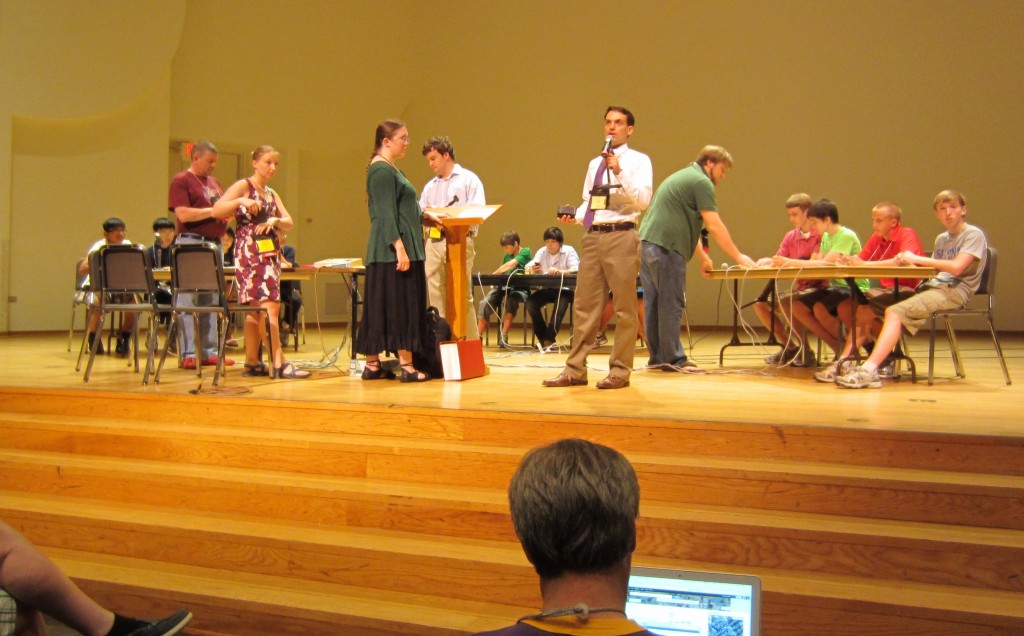The National Certamen Competition takes place during the NJCL Convention during the last week of July each summer.
The OH Novice Team won the 2012 National Championship!

Certamen Question Categories (based completely on NJCL Competitive Certamen guidelines)
I. Language Skills: Latin vocabulary, grammar and syntax, forms and inflections, derivatives and etymology, translation, abbreviations and phrases in current English usage, oral comprehension.
II. Mythology: Gods and goddesses, heroes and heroines, Greek pre-history (the Trojan War, city foundation legends, etc.), Roman pre-history (Aeneas and the Aeneadae through Romulus and Remus).
III. History of the Ancient World: Roman history, 753 BC to the reign of Constantine + Daily life in the Roman World [All students will be expected to be acquainted with the daily life of the average Roman in Rome; as the level of competition advances, players are also expected to be familiar with ancient architecture, art and technology and with Roman governmental and military institutions.]
IV. Literature (Advanced Level only): The important Roman authors from every period and all important works of Roman literature; rhetorical and poetic terms and devices (including the most important meters: dactylic hexameter, elegiac couplets and hendecasyllabic); recognition and analysis of passages from various authors. Students should pay particular attention to passages from the Aeneid, with identification of speaker and interlocutor.
Distribution of Questions
Questions in each round are taken from the four categories above in the following proportions:
- Novice & Intermediate Levels: 50% Language Skills, 25% Myth, 25% Hist/Cult
- Advanced Level: 40% Language Skills, 20% each from Myth & Hist/Cult & Literature
Question Types & their Distribution in each round
Here is a general breakdown of the types & distributions of questions for novice & intermediate for a 15 question round (some of the questions might overlap between the categories):
7/8 on language skills, with a variety of questions in each round, for example:
- Latin vocabulary
- grammar and syntax
- forms and inflections
- derivatives and etymology
- translation
- abbreviations and phrases in current English usage
- oral comprehension
3/4 on myth, with a variety in each round, for example:
- Gods and goddesses
- heroes and heroines
- Greek pre-history (the Trojan War, city foundation legends, etc.)
- Roman pre-history (Aeneas and the Aeneadae through Romulus and Remus).
3/4 on hist/cult, with half on hist and half on culture:
- The history questions will be varied and hit such different topics as monarchy/republic/empire, names/places/dates, etc
- The culture questions will be varied and hit different topics, without repeats, for a full range of knowledge
Here is the breakdown for a 15 question round for advanced: 6 on language skills, 3 on myth, 3 on hist/cult, and 3 on literature.
for the 3 questions on literature for the advanced level:
- important Roman authors from every period and important works of Roman literature
- rhetorical and poetic terms and devices (including the most important meters: dactylic hexameter, elegiac couplets and hendecasyllabic)
- recognition and analysis of passages from various authors, with particular attention to passages from the Aeneid, with identification of speaker and addressee
